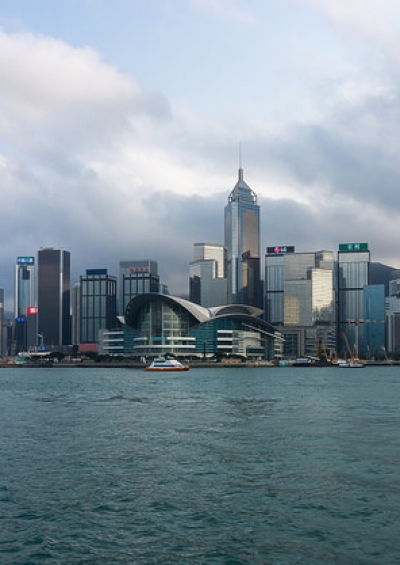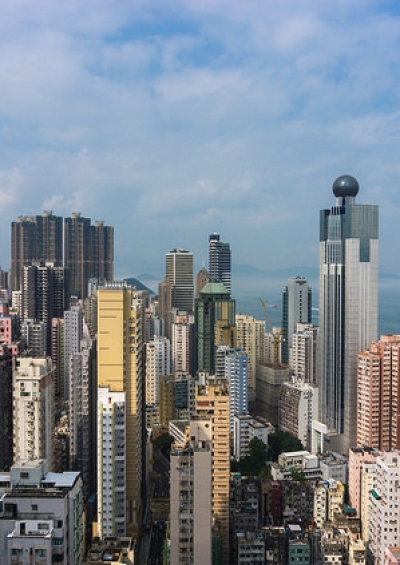Hong Kong: China’s Elusive Jewel
Beijing’s approach to Hong Kong is part of the surge in Chinese nationalism engendered by economic success.
July 3, 2017

No place was more impacted by China than Hong Kong. Its economic growth was largely sustained by the impact of China on its financial sector, and on tourism.
Today, six out of the top ten companies listed on the local stock exchange are mainland based. In 1997, none were.
The influence of mainland money grew by the year, and opportunities in China caused Hong Kong to neglect older links to southeast Asia, Japan and India.
For long, Beijing left Hong Kong largely alone, content that the local political leadership, with its inbuilt, undemocratic conservative majority, would gradually push for closer integration with the mainland rather than play-up Hong Kong’s differences.
But the past three years or so have seen a very different picture emerge and one which suggests that this is a fork in the road, not just for Hong Kong.
The path ahead
On the one hand, there has been a push for greater local democracy, driven in part by an ever widening income gaps and resentment at the wealth and power of a cartel of big companies which have appeared to have the bureaucracy and political leadership in their pocket.
But more democracy is anathema to Beijing which also finds it useful to side with the business groups.
The overt clash began with the Umbrella mass demonstrations n 2014 and has continued with the rise of local sentiment, eager to emphasise its separate status, resentful of mainland interference such as attempts to undermine use of Cantonese language.
Beijing’s approach to Hong Kong is part of the surge in Chinese nationalism engendered by economic success and now used as a political tool by President Xi Jinping.
This is not just an issue of aggressive policies in the South China and East China seas, but hostility to Western and internationalist idea generally.
Hong Kong with its close links both to west and southeast Asia, and its traditions of liberalism and ethnic diversity do not fit well with the China’s official doctrines.
Two futures
Hong Kong thus faces two possible futures. One is that the self-interests of Chinese elites and large corporations will wish to sustain Hong Kong’s separate identity, legal and economic systems.
Many in that group recognize that current displays of nationalism are counter-productive when China is supposed to be becoming a responsible international player and presenting its Belt-and-Road initiative as a cooperative, not hegemonist.
Good relations with the West also remain important and Hong Kong still provides a link that other Chinese cities cannot.
The other – which is essentially the current direction – will see a Hong Kong where media and academic freedoms are squeezed, the independence of the judicial system is eroded as Beijing emphasizes the supremacy of the executive over the other branches of government.
Discussion of issues such as Taiwan and Tibet and the South China Sea are also prevented by new laws against subversion and secession.
The vision currently peddled by Beijing and some of the local business elite is that the future lies not just with closer integration into China, but specifically into the so-called Greater Bay Area encompassing Shenzhen and other cities on the Pearl river estuary.
Together are far more populous than Hong Kong, which would by extension become more inward-looking and subservient to the bigger entity.
The choicest parts might be retained as a Monaco-style tax free playground and marina for the idle rich of the Sinic world.
The contrast with Singapore, which has used diverse immigration to build it global linkages, could not be more stark.
Hong Kong and the global system
Which route Hong Kong follows will depend partly on the ever unpredictable course of Chinese politics.
But much too will depend on whether the global system of freer trade and capital movement which has flourished under U.S. auspices since 1945 will be sustained.
The British established both Hong Kong and Singapore as free ports open to merchants of all countries. They would enable trade to flourish even while nations competed with one another for land and power.
They have played that role with distinction but ever remain reliant on global conditions.
Hong Kong’s future thus tells a lot about the direction of global commerce, and in particular how China sees itself in that.
While the financial Asian crisis (but not its lessons) has passed into history, the position of post-1997 Hong Kong remains a live issue.
Takeaways
No place has been more impacted by China than Hong Kong.
Democracy is anathema to Beijing which finds it useful to side with business groups.
Beijing’s approach to Hong Kong is part of the surge in Chinese nationalism engendered by economic success.
The British established both Hong Kong and Singapore as free ports open to merchants of all countries.
